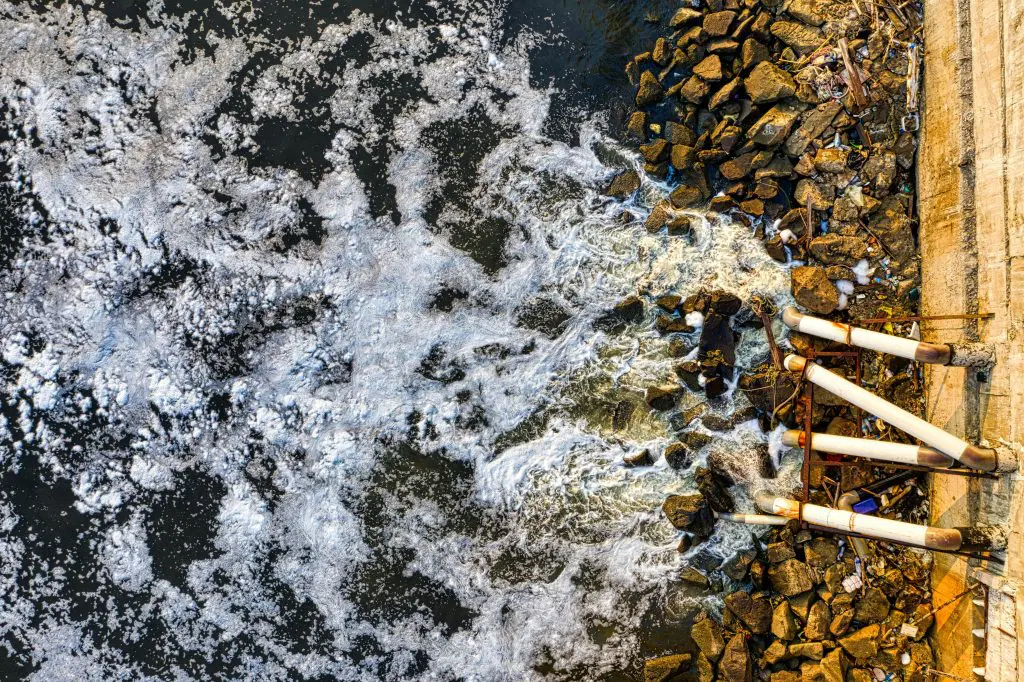
Raw Sewage Discharges in Ireland Halved, but EPA Warns of Ongoing Risks Ireland has halved the volume of raw sewage discharges into the environment since early 2024, according to a new report from the Environmental Protection Agency (EPA). However, the EPA warns that major issues remain, particularly with the management of wastewater treatment facilities operated […]
Ireland has halved the volume of raw sewage discharges into the environment since early 2024, according to a new report from the Environmental Protection Agency (EPA). However, the EPA warns that major issues remain, particularly with the management of wastewater treatment facilities operated by Uisce Éireann.
The EPA’s Urban Wastewater Treatment Report reveals that 59% of Uisce Éireann’s treatment plants failed to consistently prevent pollution. Nearly half of these failures were attributed to poor operational management, including equipment breakdowns, inadequate maintenance, and lack of staff training.
More than 1 billion litres of wastewater are treated daily across over 1,000 plants in Ireland before being released into rivers, lakes, and coastal waters. If not treated properly, this wastewater can cause pollution, harm ecosystems, and pose serious health risks due to bacteria and viruses.
The EPA acknowledged progress in some regions. New treatment plants have eliminated raw sewage discharges from towns like Arklow (Co Wicklow), Kilrush (Co Clare), Omeath (Co Louth), and Coolatee (Co Donegal), which previously released untreated wastewater into the environment.
Yet, 15 towns and villages, home to around 20,000 people, still discharge raw sewage directly into the environment daily due to a lack of treatment infrastructure.
In 2024 alone, there were 1,080 short-duration incidents at wastewater plants, with over half due to equipment failures and maintenance problems. The EPA stressed that many of these issues do not require major investment and could be resolved quickly with better operational oversight.
“Too many wastewater treatment plants are failing to meet licence standards due to poor management and maintenance practices. This is simply not good enough,” said EPA Programme Manager Noel Byrne. “When treatment plants break down or are not managed properly, our environment pays the price.”
The EPA has prosecuted Uisce Éireann 28 times for failures to treat wastewater correctly and warned that poor operational performance will not be tolerated.
The EPA’s repeated prosecutions of Uisce Éireann highlight growing concerns about regulatory enforcement in the water sector. While the agency has authority to fine and prosecute for breaches, questions remain about whether these measures are effective in changing corporate behaviour.
The transparency of enforcement actions, and the speed at which improvements are made, play a crucial role in building public trust. As environmental awareness grows, communities are demanding greater accountability, better communication, and public access to real-time data on water quality and wastewater incidents.
The report also criticises ongoing delays in infrastructure upgrades. The EPA identified 78 priority areas for improvement, but Uisce Éireann has not started work in half of them. These delays prolong water quality risks in rivers, lakes, and coastal waters.
In response, Uisce Éireann said it is addressing these issues through a multi-billion-euro capital investment programme, the largest of its kind in Ireland. The utility attributed many of the current problems to decades of under-investment and aging infrastructure, including 2,200 pumping stations and 26,000 km of sewer networks.
To tackle this, the organisation has restructured operations, improved incident response, and begun efforts to increase the resilience of Ireland’s wastewater systems.
However, it also pointed to legal and planning challenges. The critical Greater Dublin Drainage Project, for example, has been delayed by over seven years and is currently held up in judicial review.
“Sustainable development cannot happen without appropriate water services infrastructure, and it is imperative that Uisce Éireann is given appropriate consideration in legislation at the plan, policy, and project levels to enable delivery of these essential projects,” said Maria O’Dwyer, Director of Infrastructure Delivery at Uisce Éireann.
While the reduction in raw sewage discharges marks an improvement, the EPA stresses that Ireland is still far from meeting the standards required to protect public health and the environment.
Resolving management failures, accelerating infrastructure upgrades, and ensuring accountability remain urgent priorities.
Raw sewage discharges cut in half since early 2024.
59% of plants still fail to prevent pollution consistently.
20,000 people’s sewage remains untreated.
Nearly half of failures are due to poor maintenance, not infrastructure.
Urgent EPA call for Uisce Éireann to act on operational issues.
Delays continue to stall progress in half of priority areas.
While the halving of raw sewage discharges marks notable progress, Ireland’s wastewater system continues to face serious challenges. The EPA has made it clear that operational failures, not just infrastructure gaps, are undermining environmental protection. Immediate action is needed to improve plant management, accelerate delayed projects, and safeguard the country’s water quality for future generations.
At All-Ireland Sustainability, we’re committed to building a greener, fairer island, together. Stay informed on the latest environmental initiatives, community action, and policy developments shaping sustainability across Ireland, North and South.
👉 Sign up for our newsletter today and be the first to hear about upcoming events, expert insights, and ways to get involved.
Whether you’re a seasoned advocate or just starting your journey, new members are always welcome.
Subscribe now and be part of the All-Ireland Sustainability Membership.